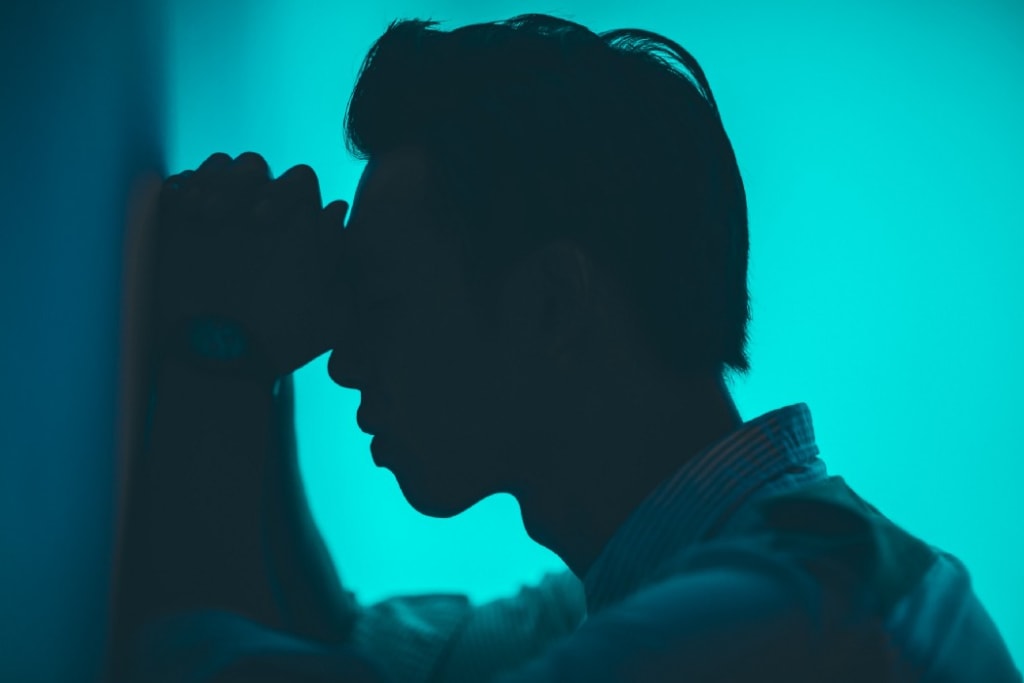American Society Wants The Sick And Tired To Die
It seems like we want sick people like me to perish

I am sick a lot. Simple colds will knock me out for days or weeks, forcing me to pick up the pieces afterward. I have gotten into the habit of expecting gaps of fatigue and illness. I have had trouble being a "productive" member of society for years, and truthfully only exist right now because I have a robust support system.
When I ask my sick friends who don't have a safety net how they do it, the answer is that they soldier on through. They go to offices and restaurants with sniffles, fatigue, and headaches, suppressing coughs with over-the-counter medications and curealls they have learned from Instagram and TikTok.
Because they have to work, there are often no nets to catch them. And the ones who don't work—well, some are not around anymore. From where I am looking, it really does seem like we want the sick and tired to die.
Conversations of work and burnout are usually framed around non-disabled and non-sick people — and how they are overworked and one bad sick day away from financial ruin — but what about those already there? Millions of Americans have chronic illnesses. About one in four Americans have some form of disability.
What are they supposed to do? What am I, for this question is more than personal (its life and death)?
This society does not treat well people who cannot produce. America has what some have described as a "tattered" or nonexistent safety net with stringent work requirements. I remember my friend telling me once that even though she was in constant pain, she did not qualify for long-term disability because, as a knowledge-based worker, she didn't have to lift anything. The assessor told her that if "she could sit at a desk, she could work." I remind you — she was in constant pain.
Those living with a disability are more likely to be in debt, unemployed, and more likely to be in poverty overall. It should be noted that issues of poverty and disability or illness are not so easily separated from one other, as poverty can profoundly impact someone's disability status. As written in a report by the National Disability Institute:
“Children living in poverty are more likely to have asthma, chronic illness, environmental trauma such as lead poisoning, learning problems and low birth weight that lead to disabilities. People in more physically demanding jobs are also more likely to suffer workplace illnesses and injuries…Disability adversely affects employment possibilities and earnings. It also can impose additional costs on families, such as medical bills, transportation, modifications to their home and personal assistants.”
Since poverty can lead to disability and vice versa, this creates a vicious cycle as those in poverty are less likely to receive care, and those with disability are less likely to obtain work that will be able to pay for that care. Preventative conditions go untreated longer, leading to more severe "long-term" effects, and it should surprise no one that these trends stack with "otherized" identities such as race and gender.
Sadly, this leads to more deaths, some immediate, others that take far longer to play out. We speak in large brushes, but there seems to be a life expectancy gap between disabled and non-disabled adults (see this longitudinal survey on elderly adults). There is also tragically an increased risk of suicide for people with disability.
These statements aren't me being judgemental or self-hating but instead placing the blame on our society. Suicides and significant gaps in life expectancy are systemic failures. The expectation that some people should have shorter, more miserable lives is an admission of neglect.
The implication of this data seems to be clear: if you cannot produce, our society doesn't even pretend to care if you live or die. You get put on a patchwork of safety net programs that are more about protecting our collective guilt rather than actually helping people. We ignore the millions of people who wither away. And sure, maybe a fraction of those deaths might have happened anyway — we all die eventually — but many of us see our conditions worsen because we are denied the resources needed to mitigate them. What was preventative or manageable becomes more severe.
Most of us aren't even suffering from a terminal illness (although I want to stress that I believe everyone is deserving of respect and humanity). We're just tired, fatigued, in pain, depressed, or otherwise have a form of existence that prevents us from conforming to current norms of productivity. Our ability to produce is not competitive, and for that, we suffer the ultimate price. As Chris Costello writes in The Mighty of ableism's interconnectedness with capitalism:
“The discrimination and oppression of impaired people based on a manufactured category of disability rested on the underlying assumption that being “able-bodied” or “able-minded” was the social norm, the desirable default. Today, this attitude goes by the name “ableism.” It is part and parcel of capitalist society because production for profit at all costs means excluding workers who require individual accommodations. The state and other institutions, such as education and the media, promote ableist ideas by rationalizing our exclusion from the workplace. The stigma, while it originates in the workplace, goes beyond this sphere as well. It encompasses all realms of social existence.”
This whole situation is my problem with our current economic system. Even if you bolster the existing safety net, the underlying assumption is that we have no value on our own. We are people society must deign to care for. We are those who "risk slipping through the cracks," a burden, rather than vulnerable human beings, like all of us will be, in the end, deserving of resources for the mere fact that we are alive. As someone satirically answered to the question on Quora, Why should my taxes go towards welfare payments of people who do not engage in economic activity?:
“Are you immortal? If not, will you age? If so, you will not be able to work. I hope you’re saving, because why would we spend money on YOU.
Are you healthy? If so, will you never get sick? If you get too sick to work, why would we spend any money on YOU.”
This reality builds a relationship based on resentment rather than care and vulnerability. We are people who must be grateful for the resources given to us, no matter how paltry they are, because they are ultimately framed as a form of benevolent charity. The giver of these resources is therefore allowed to not only feel superior for giving them but entitled to take them away at any moment. After all, those given resources based on the benevolence of others are entitled to nothing.
And make no mistake, everyone will be in this position eventually. Even if you exercise, diet, have the resources for the best doctors, and have stellar genetics, you too will ultimately wither away into nothingness. Some might have enough resources to bribe others to care for them as they exit life, an arrogant bet, to be sure, but the vast majority will not. Most of us will need someone to care for our ailing bodies during our Twilight years, and there will be nothing profitable about it.
I ask you: Does life have inherent value?
Do the sick and tired deserve to die if they cannot produce?
Do I?
These are the questions I need you to grabble with the next time you tell people like me that they are lazy and underserving of care. This isn't a mere rhetorical disagreement or a clashing of words. It is a decision over who lives and who dies, and I think you need to decide what kind of society you would like to live in: one that will care for you, or one that will watch you die?
About the Creator
Alex Mell-Taylor
I write long-form pieces on timely themes inside entertainment, pop culture, video games, gender, sexuality, race and politics. My writing currently reaches a growing audience of over 10,000 people every month across various publications.






Comments
There are no comments for this story
Be the first to respond and start the conversation.